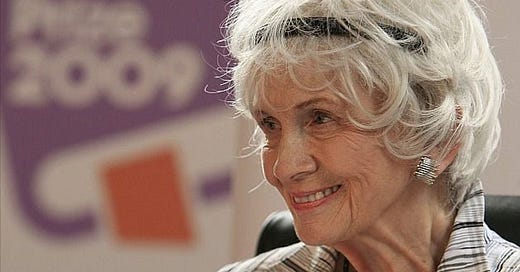As an English Major at the University of Victoria in the mid-80’s, Alice Munro was on the syllabus. I was forced to read her.
I didn’t understand her stories. I didn’t get what all the fuss was about. A) they were just short stories, B) they were very ordinary in setting, time and character, and C) nothing seemed to happen (more on C in a moment.) Shakes…
Keep reading with a 7-day free trial
Subscribe to My Renaissance Life to keep reading this post and get 7 days of free access to the full post archives.




